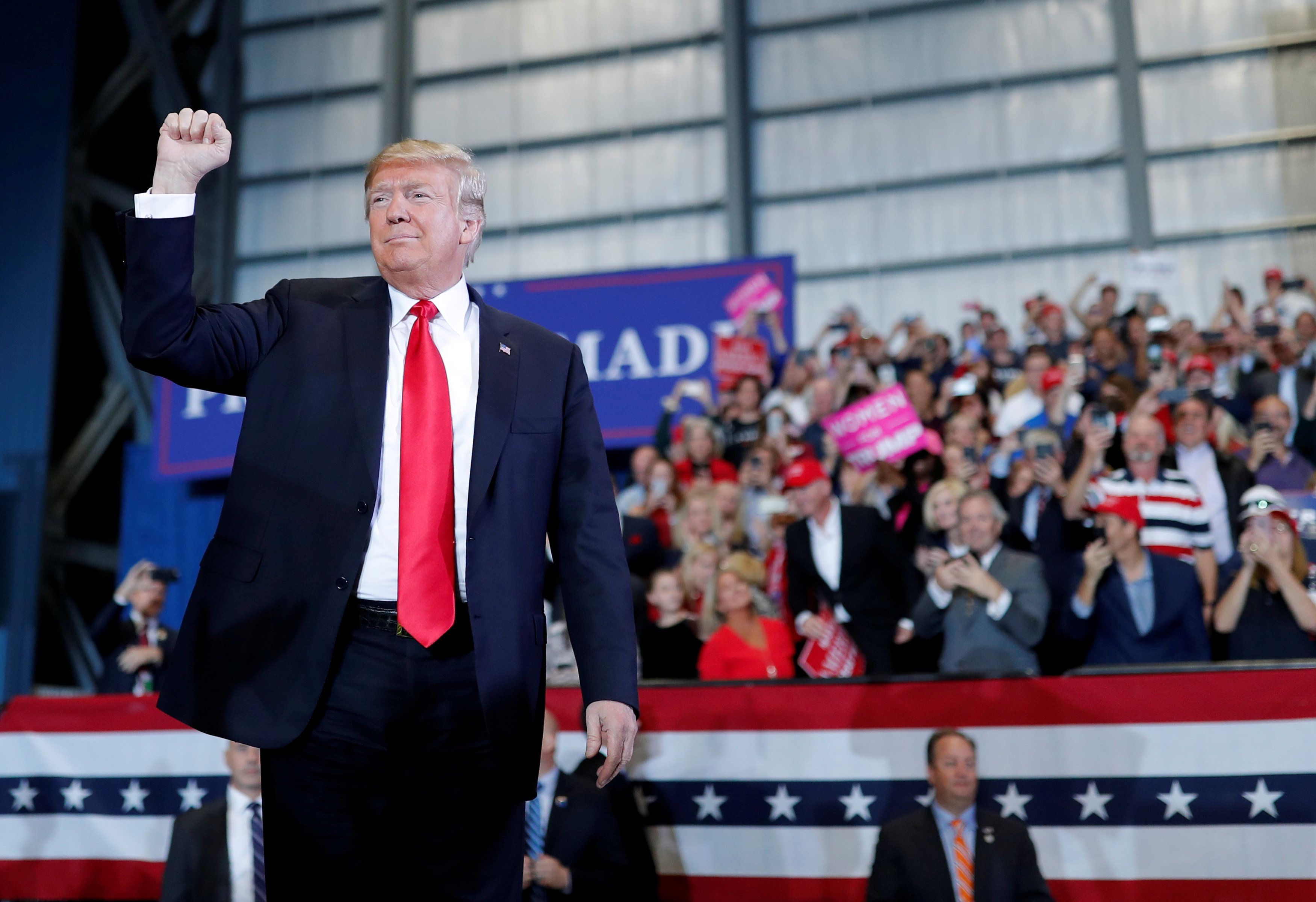Today, a deeply divided America votes in midterm elections for Congress, governors, and state and local legislatures. Amid a level of furious polarization not seen in decades, the vote is in many ways a referendum on President Trump’s unconventional presidential style, his “America First” agenda, and his bid to take the Republican Party in a radically more nationalistic direction.
Democrats, fired up with animus against Trump, are hoping that strong turnout among millennial voters and women (particularly in politically-purple suburban districts) can help them gain the two dozen seats they’ll need in order to take control of the House of Representatives, as polls suggest they can. Republicans, meanwhile, are focusing more on defending their control of the Senate. President Trump, in recent days, has rallied the party’s base by stoking fears about immigration and focusing on America’s roaring economy. The latest surveys suggest GOP will hold the upper chamber.
Since our beat here is global affairs, let’s take a look at the election through that lens.
How much do mid-term voters care about foreign policy?
Quite a bit. Polls show that foreign policy is a top issue for about two-thirds of voters right now. That’s about the same as in 2014, and while it ranks lower than traditional domestic issues such as healthcare (top concern for 80% of voters), economic policy, or immigration, it’s one of the few issues that is equally important for both Democrats and Republicans (see graphic below.)
What’s more, while it’s true that immigration outshines “foreign policy” as a concern for Republicans and “climate policy” does the same for Democrats – both of those issues are in fact closely bound up with the broader debate about what role America should play globally today. For Trump and his supporters, for example, proposals to regulate immigration more tightly and exit global pacts to combat climate change are part and parcel of the more assertively nationalistic America First foreign policy that he has outlined.
Do other countries and their leaders care?
You bet. Other world leaders are watching the election closely because of what the result tells them about Trump’s political future – a strong showing for the GOP will put Trump in a more competitive position as he seeks his own re-election in just two years.
That calculation is particularly important for leaders at odds with the US: after all, Chinese president Xi Jinping has to calculate how far to take a trade war with the US; North Korean leader Kim Jong-un has to craft an endgame for his current strategy of wooing Trump personally without conceding much on denuclearization; and Iran has to decide whether to abandon the nuclear deal now that the US has bolted on it, or to hold out hope for repairing it under a future US administration less implacably hostile to Tehran. All of those decisions look very different if Trump seems likely to be in power for another six years rather than just another two.
But that question matters also for traditional American allies such as Japan, Canada, and the EU, which are watching closely to assess the depth and permanence of the uncertainty the Trump has introduced into their ties to Washington. The prospect of another half dozen years of Trump would accelerate their efforts to develop financial and security policies that are more independent of the United States.
Would a divided Congress affect Trump’s foreign policy?
Not directly, no. In foreign policy, the US President has extremely broad scope for action – on military interventions, trade policy, and adherence to international rules and norms – that does not require Congressional approval.
One of the few areas where the House will have a say is on ratifying the revised NAFTA treaty, now called the USMCA. But here House Democrats would be in a bind: opposing Trump’s relatively mild but still worker-friendly revisions to the pact would be political suicide if the party hopes to win back white blue-collar voters who voted for Trump in 2016. Hard to see House Democrats making that a hill to die on just to stymie Trump.
What the House can do is open Congressional investigations or audits of areas that are related to foreign policy – such as the budgets of the Pentagon and State Department, Trump’s alleged financial ties to foreign powers, or the ongoing allegations of collusion in the 2016 election. Prominent democrats have already signaled that if they gain control of the House this is precisely what they plan to do.
